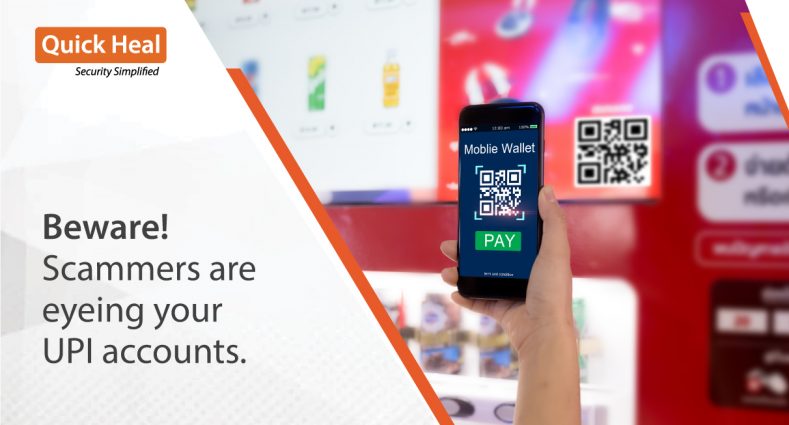E-wallets are becoming prominent targets for cyberattacks!

It has been evident now that the COVID-19 pandemic has led to a sharp spike in digital payments. According to a report, mobile wallet transactions are expected to exceed USD 1.36 trillion by 2024 in India. An estimated 23.5 billion mobile wallet transactions were expected to be carried out in 2020.
Another report stated that the number of total mobile payment users in the country would shoot up to 800 million in 2025, a significant growth from just 162 million in 2019-20. Mobile wallets will continue to play a key role in the rise of digital transactions with the report suggesting that mobile wallets would see higher penetration among lower-income households thus driving multiple small-ticket transactions. The problem: Cyberattackers have taken notice of this mounting financial pool.
The RBI has now taken note of financial frauds
The downside to this growth: the proliferation of online scams when it comes to digital payments, especially mobile wallet frauds. Recognizing the need to create safeguards, the Reserve Bank of India (RBI), India’s apex body, announced that it would be proposing rules for digital payment security controls, called the Reserve Bank of India (Digital Payment Security Controls) Directions, 2020 and would aim to implement common minimum standards of security controls for Internet, mobile banking, card payments, etc.
RBI’s action is much welcomed as the recent few months has seen a spat of digital payment frauds perpetrated by hackers. In the past, we have looked at how fraudulent QR codes have been used to steal money and how social media is used to commit all kinds of financial thievery. Mobile wallet frauds are similar; stay clear of them for your financial wellbeing.
Be wary of storing your financial details with them
Most of these e-wallets prompt you to store your financial data with them so you don’t have to enter it over and again when making payments. While it’s convenient, it means this important data gets stored in their servers and if your preferred e-wallet ever suffers a data breach, your sensitive financial information is in the hands of fraudsters.
Don’t get fooled, don’t give your OTP
We all know that we shouldn’t give away important data such as OTPs and yet we still manage to get scammed. That is because we get taken in by fake apps or by people impersonating themselves as bank executives. Remember, don’t give your OTP to anyone, whoever they might claim to be. Pass this information on, especially to Internet users who may not be as aware of how financial frauds are committed.
Don’t transact using e-wallets on public Wi-Fi
You never know the security setting of the public Wi-Fi you are using. Are you sure someone isn’t listening in? It might just be one transaction for you but that one transaction could lead to your entire bank account being wiped out. Sounds scary? Take the cautious route and transact only on private & secure Wi-Fi networks.
Report fraud when it happens
Don’t be afraid to report fraud when it happens. Report it as soon as possible; according to RBI guidelines, e-wallet users will not have liability if they report a fraud within three days. Timely reporting of fraud will ensure a greater chance of the criminals being tracked down.
Ensure your mobile device is secure
Ensure you have a mobile protection solution if you are using an e-wallet. For example, Quick Heal Total Security for Android comes with a SafePe feature that secures financial transactions and keeps you safe when you’re using payment apps on your phone.
No Comments, Be The First!